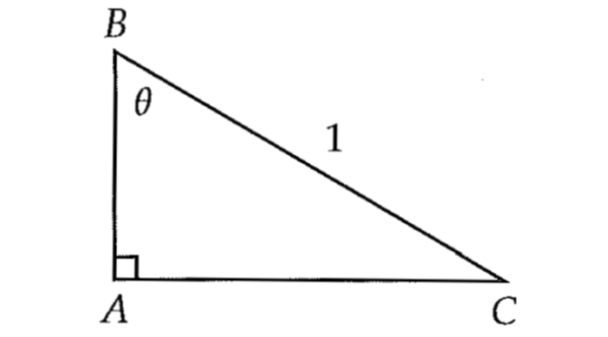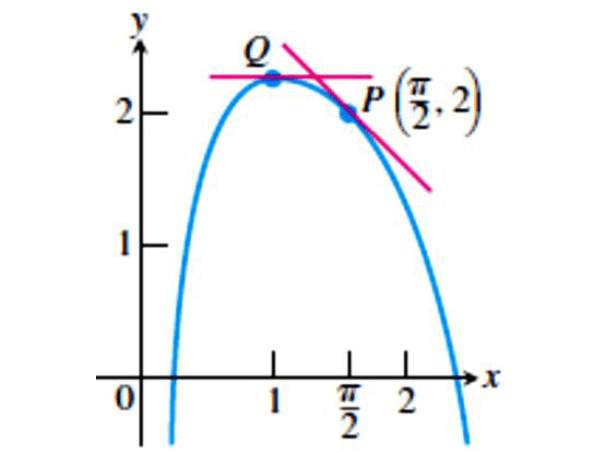FIND THE MISSING DIGITS IN THE GIVEN NUMBER USING DIVISIBILITY TEST
Example 1 :
If
8A5146B is divisible by 88, then what is the value of AxB?
A) 4 B) 16 C) 8 D) 12
Solution :
According to the property of divisibility, when a number is divisible by two or more co-prime numbers, it is also divisible by their product.
By writing 88 as the product of two co-primes, we get
88 = 11 x 8
If the number 8A5146B is divisible by 88, then it is also divisible by both 11 and 8.
Divisibility Rule for 8 :
In a number, if the last three digits are zeros or the number formed by the last 3 digits is divisible by 8, then the number is divisible by 8.
In 8A5146B, the number formed by the last three digits is 46B. Because it is divisible by 8, the value of B should be 4.
Divisibility Rule for 11 :
In a number, if the sum of the digits in odd places and sum of the digits in even places are equal or they differ by a number divisible by 11, then the number is divisible by 11.
Sum of the digits in odd places = (8 + 5 + 4 + B)
= (17 + B)
Replacing B by 4, we get
= 17 + 4
= 21
Sum of the digits in even places = (A + 1 + 6)
= (A + 7)
If A = 3, then A + 7 = 10. So, the difference between the sum of odd places and even places will be 11,(21 - 10 = 11) which is divisible by 11.
Then,
A = 3 and B = 4
A x B = 3 x 4
A x B = 12
Hence the value of A x B is 12.
Example 2 :
The number A39K2 is completely divisible by both 8 and 11. Here both A and K are single digit natural numbers. Which of the following is the possible value of A + K ?
a) 8 b) 10 c) 12 d) 14
Solution :
Given :
The number A39K2 is completely divisible by both 8 and 11.
First use the divisibility test for 11.
Sum of digits in the odd places = A + 9 + 2
= A + 11 --(1)
Sum of digits in the even places = 3 + K ---(2)
According to the rule of divisibility by 11, the sum of digits in the odd places and even places must be equal.
Then,
(1) = (2)
A + 11 = 3 + K
K - A = 11 - 3
K - A = 8
Because A and K are single digit natural numbers, we can get
K - A = 8,
when K = 9 and A = 1.
Substitute the values of A and K in the given number and check the divisibility rule for 8.
A39K2 ==> 13992
In 13992, the number formed by the last three digits is 992 that is divisible by 8.
So, 13992 is also divisible by 8.
Then,
A + K = 1 + 9
A + K = 10
Therefore, the value of A + K is 10.
Example 3 :
Find the value of a + b + c if 173a is divisible by 9, 173b is divisible by 11 and 173c is divisible by 6.
Solution :
Given :
173a is divisible by 9
So, the sum of the digits in '173a' is also divisible by 9.
1 + 7 + 3 + a = 11 + a
(11 + a) is divisible by 9, if a = 7
Given :
173b is divisible by 11
Sum of the digits in odd places :
1 + 3 = 4 -----(1)
Sum of the digits in even places :
7 + b -----(2)
According to the divisibility rule for 11, (1) and (2) must be equal or (1) and (2) must differ by a number divisible by 11.
If (1) and (2) are equal,
4 = 7 + b
-3 = b
But, the value of 'b' can not be negative.
So, we can ignore this.
Now, we can try the second option of divisibility rule for 11.
That is, (1) and (2) must differ by a number divisible by 11.
The difference between (1) and (2) is
= (7 + b) - (1 + 3)
= 7 + b - 4
= 3 + b
(3 + b) is divisible by 11 when b = 8.
So, the value of b is 8.
Given :
173c is divisible by 6
If 173c is divisible by 6, then 173c is also divisible by both 2 and 3.
Because it is divisible by 3, the sum of the digits is also divisible by 3.
1 + 7 + 3 + c = 11 + c
If c = 4, then 11 + 4 = 15 which is divisible by 3 and 1734 is also divisible by 2.
Then,
a + b + c = 7 + 8 + 4
a + b + c = 19
Therefore, the value of (a + b + c) is 19.
Kindly mail your feedback to v4formath@gmail.com
We always appreciate your feedback.
©All rights reserved. onlinemath4all.com
Recent Articles
-
Digital SAT Math Problems and Solutions (part - 92)
Dec 27, 24 10:53 PM
Digital SAT Math Problems and Solutions (part - 92) -
SAT Math Resources (Videos, Concepts, Worksheets and More)
Dec 27, 24 10:48 PM
SAT Math Resources (Videos, Concepts, Worksheets and More) -
AP Calculus AB Problems with Solutions
Dec 26, 24 07:41 AM
AP Calculus AB Problems with Solutions

